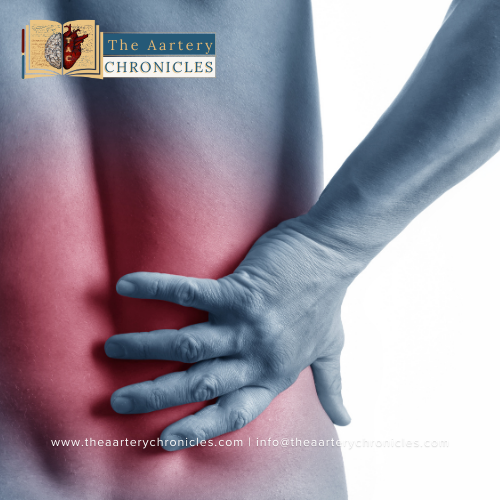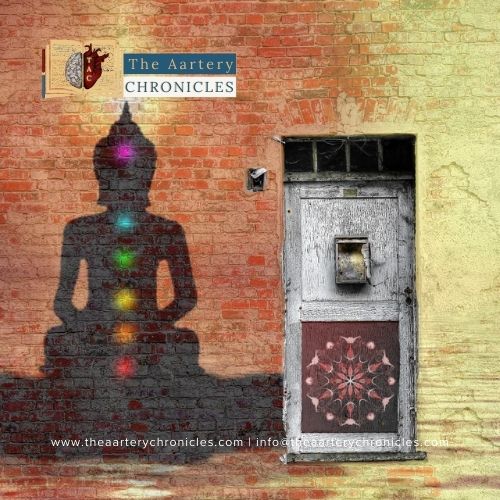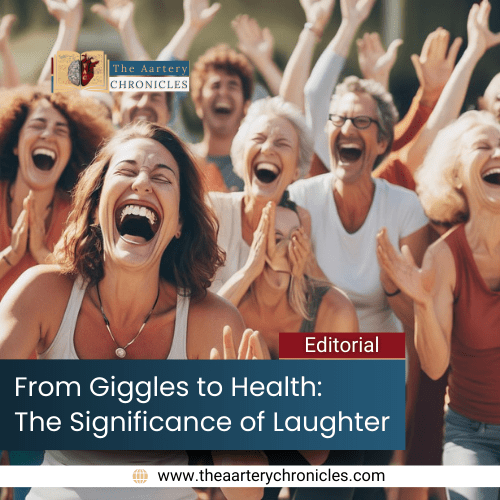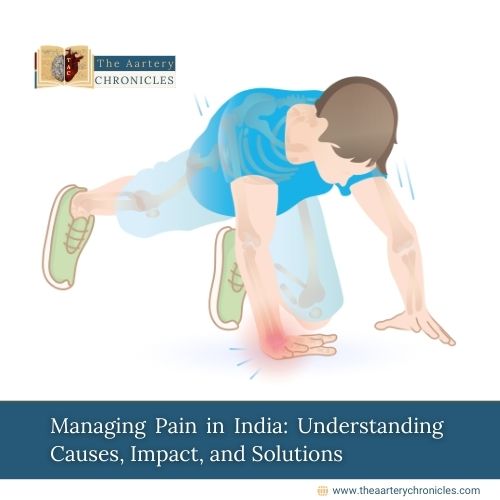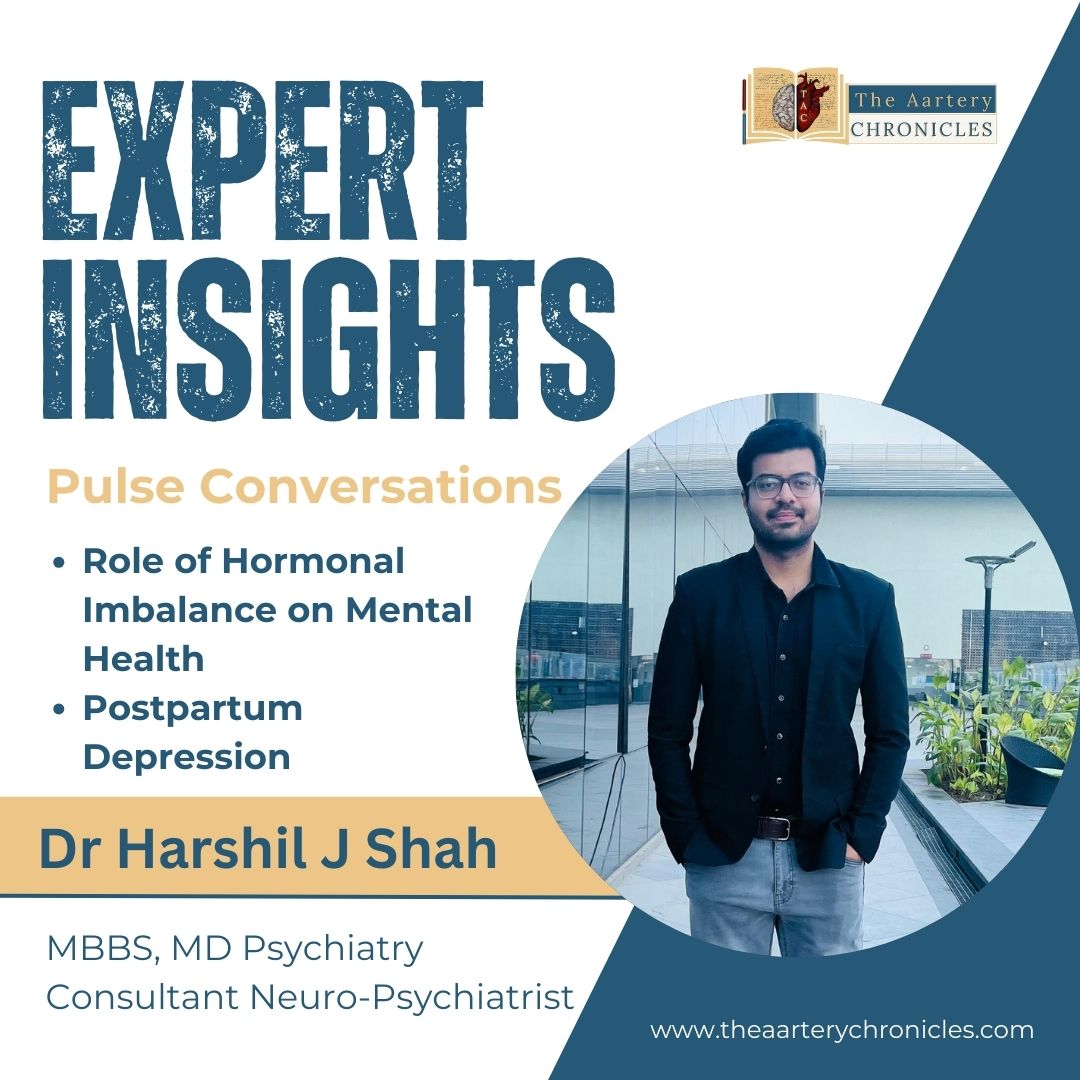
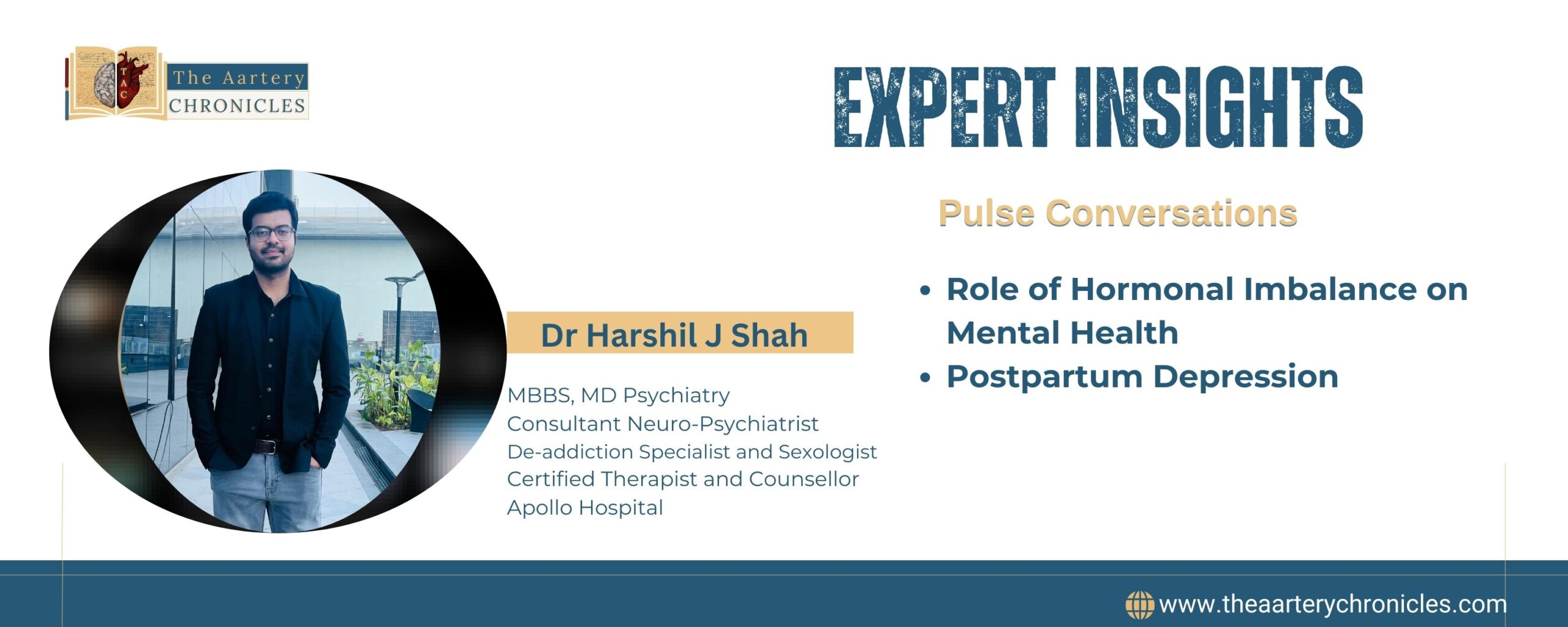
The Role of Hormonal Imbalance on Mental Health and Postpartum Depression - Expert Insights
Overview
Hormones and neurotransmitters play a pivotal role in regulating mood and overall mental health. These biochemical substances influence a range of emotional and physical responses, impacting how we feel, think, and behave. Imbalances in these chemicals can lead to various mental health conditions, including anxiety, depression, and notably, postpartum depression.
In an engaging discussion with The Aartery Chronicles, Dr. Harshil J Shah, an esteemed psychiatrist, sheds light on the crucial role of hormones and neurotransmitters in mental health.
He emphasizes their significant impact on mood regulation and the development of mood disorders like PMS (Premenstrual Syndrome), PMDD (Premenstrual Dysphoric Disorder), and mental health conditions such as postpartum depression.
The Science Behind “Happy Hormones”
Dr. Harshil explains that the term “happy hormones” is often used to describe certain neurotransmitters that are essential for regulating our mood. The four major hormones involved are serotonin, norepinephrine, dopamine, and endorphins. These hormones are responsible for mood regulation, energy levels, and emotional stability.
Among these, dopamine is the most widely recognized. However, serotonin, norepinephrine, and endorphins are equally crucial in maintaining mental balance. When these hormones are secreted in appropriate amounts, they help in creating a sense of well-being. On the other hand, a deficiency or imbalance can lead to mood disorders like depression and anxiety.
What is Endogenous Depression?
Dr. Shah highlights a specific condition known as endogenous depression, where despite the absence of external stressors and a generally smooth life, individuals still experience depression. This type of depression is primarily due to insufficient secretion of neurotransmitters rather than life circumstances. For such conditions, the key lies in addressing the biological aspect—boosting the levels of serotonin, norepinephrine, or dopamine through medication. This medical intervention can help restore balance and improve mood.
Role of Hormonal Imbalance on Women’s Health
Dr. Shah explains that in addition to neurotransmitters, hormones like testosterone, prolactin, and estrogen also play an integral role in mental well-being. Hormonal fluctuations, especially in women, can lead to mood disorders.
Conditions like premenstrual syndrome (PMS) and premenstrual dysphoric disorder (PMDD) are common examples where hormonal changes affect emotional stability. These disorders are characterized by mood swings, irritability, and low energy levels and usually occur 5 to 7 days before menstruation. The symptoms often subside after the period starts. During this time, hormones such as estrogen, progesterone, and prolactin interact with serotonin and dopamine, further influencing mood regulation.
He further explains that to address hormonal-related mental health issues, healthcare professionals may recommend medications or therapies aimed at stabilizing hormone levels. In some cases, collaboration with endocrinologists is essential to manage hormonal imbalances effectively.
Postpartum Depression: A Closer Look
Dr. Harshil J Shah explains that postpartum depression is a type of depression that occurs after childbirth. It usually manifests within the first month post-delivery and is marked by feelings of intense sadness, anxiety, and fatigue that can interfere with a mother’s ability to care for her newborn.
Dr. Shah explains that after childbirth, dramatic hormonal shifts, particularly the decrease in estrogen and progesterone levels, alongside an increase in prolactin, can severely affect a woman’s mood and contribute to postpartum depression. These hormonal shifts can lower levels of serotonin and other mood-stabilizing neurotransmitters and can affect levels of mood-regulating neurotransmitters like serotonin and norepinephrine. These hormonal imbalances during the postpartum phase can lead to depressive symptoms.
Symptoms and Severity of Postpartum Depression
Symptoms of postpartum depression can range from mild to severe and include:
- Persistent sadness or low mood
- Fatigue and sleep disturbances
- Irritability and anger
- Difficulty bonding with the baby
- Feelings of inadequacy or guilt
In severe cases, postpartum depression can escalate to postpartum psychosis, a rare but serious condition characterized by delusions and hallucinations. For example, a mother might have delusions that her baby is an enemy or poses a threat to her, which can lead to harmful behaviors towards the infant. Dr. Shah emphasizes the importance of monitoring the mother’s behavior closely during the postpartum period to identify any signs of distress early on.
Prevention and Treatment for Postpartum Depression
To prevent and address postpartum depression effectively, Dr. Shah recommends the following steps:
- Awareness and Education: Raising awareness about postpartum depression is crucial. Educating expecting mothers, families, and healthcare providers about the signs and symptoms can help in early detection and intervention.
- Monitoring and Support: Regularly monitoring the mother’s behavior after delivery is essential. Healthcare providers should ask targeted questions about mood changes, bonding with the baby, and overall emotional well-being.
- Seek Professional Help: If symptoms are identified, it is important to consult a healthcare professional, such as a psychiatrist, for evaluation and treatment. Early diagnosis and intervention can prevent the condition from worsening further.
- Treatment Options: Treatment for postpartum depression often involves a combination of therapy and medication. Selective serotonin reuptake inhibitors (SSRIs), a common type of antidepressant, are typically prescribed for a course of three to six months to help restore the balance of neurotransmitters and improve mood. In more severe cases, temporary separation of the mother and infant might be necessary until the mother’s condition stabilizes.
- Promote Mother-Infant Bonding: Maintaining closeness between the mother and the infant is crucial for both their mental health. Physical touch, feeding, and nurturing play a vital role in the infant’s emotional development and the mother’s recovery.
The Biopsychosocial Approach to Mental Health
Dr. Shah emphasizes the importance of adopting a biopsychosocial approach to address mental health issues. This model takes into account the biological, psychological, and social factors that contribute to mental health disorders. By addressing all three aspects, healthcare professionals can offer more comprehensive treatments.
For example, in cases where neurotransmitter imbalances are at the root of depression, medications can help regulate serotonin, dopamine, or norepinephrine levels. In addition, therapy can be used to address psychological stressors, while lifestyle modifications can help manage social pressures. This holistic approach ensures that all contributing factors to mental health issues are addressed.
Conclusion
In conclusion, Dr. Harshil J Shah emphasizes that understanding the intricate relationship between hormones, neurotransmitters, and mental health is essential for effective diagnosis and treatment. Conditions like PMS, PMDD, and postpartum depression often stem from biological factors, such as hormonal imbalances, rather than purely psychological or social causes. By recognizing these underlying influences, individuals can seek timely medical intervention, reducing stigma and ensuring a more holistic approach to mental health care, especially for women during critical phases like menstruation and post-pregnancy.


